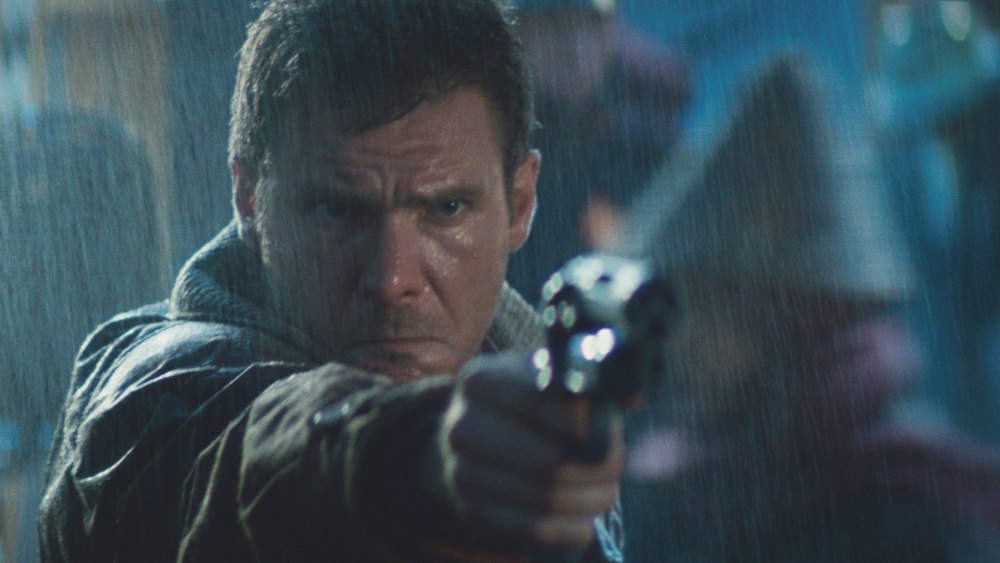[Retro Review] Blade Runner
On June 25, 1982, Ridley Scott released a movie that beautifully married classic film noir and science fiction that took place in the future of november 2019. Cut to actual november 2019, the film is regarded as one of the best that Sci-Fi has to offer, and even has a masterpiece of a sequel. Given that we are now in the distant future that Blade Runner was set in, there would be no better time to talk about this movie then now. This is not going to be a review necessarily, rather a look back on the film, its brief history, why it’s remained timeless, and what I personally love about the film. Sorry this article is out so late, scheduling conflicts prevented this from going up. I’m aware I missed the mark but better late than never.
The version I’ll be talking about is the “Final Cut” of the film. Two other cuts of the film exist, the theatrical cut and the director’s cut, similar to Zack Snyder’s Watchmen. Many people may not know this, but the film was actually based on a book. Rather loosely based I might add, the book shares very few similarities with the movie. The book is called “Do Androids Dream Of Electric Sheep” and was written by Phillip K. Dick in 1968.
One of the many things I absolutely love about Blade Runner is the gorgeous cinematography by Jordan Cronenweth. While the Star Wars style opening credits give us insight into the history of this world, The shots of future Los Angeles give us insight into the world itself. Giant ads overwhelm the sides of buildings, industrial fire shot straight into the air, The shots of blimps promoting off world pilgrimages. Even scenes of characters talking help isolate the characters by almost exclusively having one character in frame at a time. The mass crowds of people also serve to isolate the characters. Locations feel crowded and that even becomes an obstacle for Deckard as he chases the replicant Zhora through the streets. These shots and more perfectly showcase a world overwhelmed by unrestricted capitalism, overpopulation, and a lack of human connection.
This movie isn’t style over substance however. Blade Runner has a lot on its mind, with various themes of loneliness, the dangers of unbound corporations, and of course what it means to be human. Deckard is an extremely lonely protagonist, as said before, the shot composition reflects. He usually always occupies the screen by himself, until his meeting with Rachel and the revelation of her being a replicant in his apartment. When Rachel plays the piano in his apartment the second time, the two occupy the same frame, emphasizing their growing relationship.
The capitalism is everywhere in this movie. The cyberpunk subgenre as a whole was inspired by fear of the Reagan Administration which lifted restrictions on corporations in the 80’s. Hence the overbearing and degrading advertisements littered across future LA. corporations are always painted in a negative light, even when they create life in the form of replicants they just use them as slave labor and the replicants are even executed on sight for rising up against their human oppressors. That leads me to the last theme.
Oddly enough the Replicants, which are said to be just mindless machines, exhibit more humanity than most of the people in the movie. A failsafe built into the replicants to keep them from rising up again is a mere four year life span. Because of this, Roy Batty(played by the late Rutger Hauer) leads three other replicants to earth in hopes of convincing their creators to lengthen their life span. Upon realising he can’t live any longer, Roy saves Deckard’s life in their final showdown and tells us the idea behind this theme. What makes us human isn’t flesh and blood, it’s our memories, experiences and our emotional responses to them. But this them becomes optimistic in Roy’s last monologue.
“All those memories will fade with time, like tears in the rain.”
While our experiences and lives are short and will eventually fade, we can live on by imparting and sharing experiences with others. This is why at the end of the film Deckard chooses to run away with Rachel and reject his loneliness.
I feel it’d be wrong to have a retrospective of this movie without also paying tribute to my favorite actor in this movie, Rutger Hauer. Sadly he passed away in July of this year and I felt he deserved to be recognized for the talented actor he was here. I just can’t imagine anyone else in this role, he truly makes it his own and the movie would not have been the same without him.
Blade Runner is a perfect Sci-Fi film. The breathtaking cinematography emphasizes the paranoia of mega corporations and isolates our characters. The themes of loneliness and what exactly does being human mean, are impactful and thought provoking and will probably keep me thinking about this movie for a long time.

